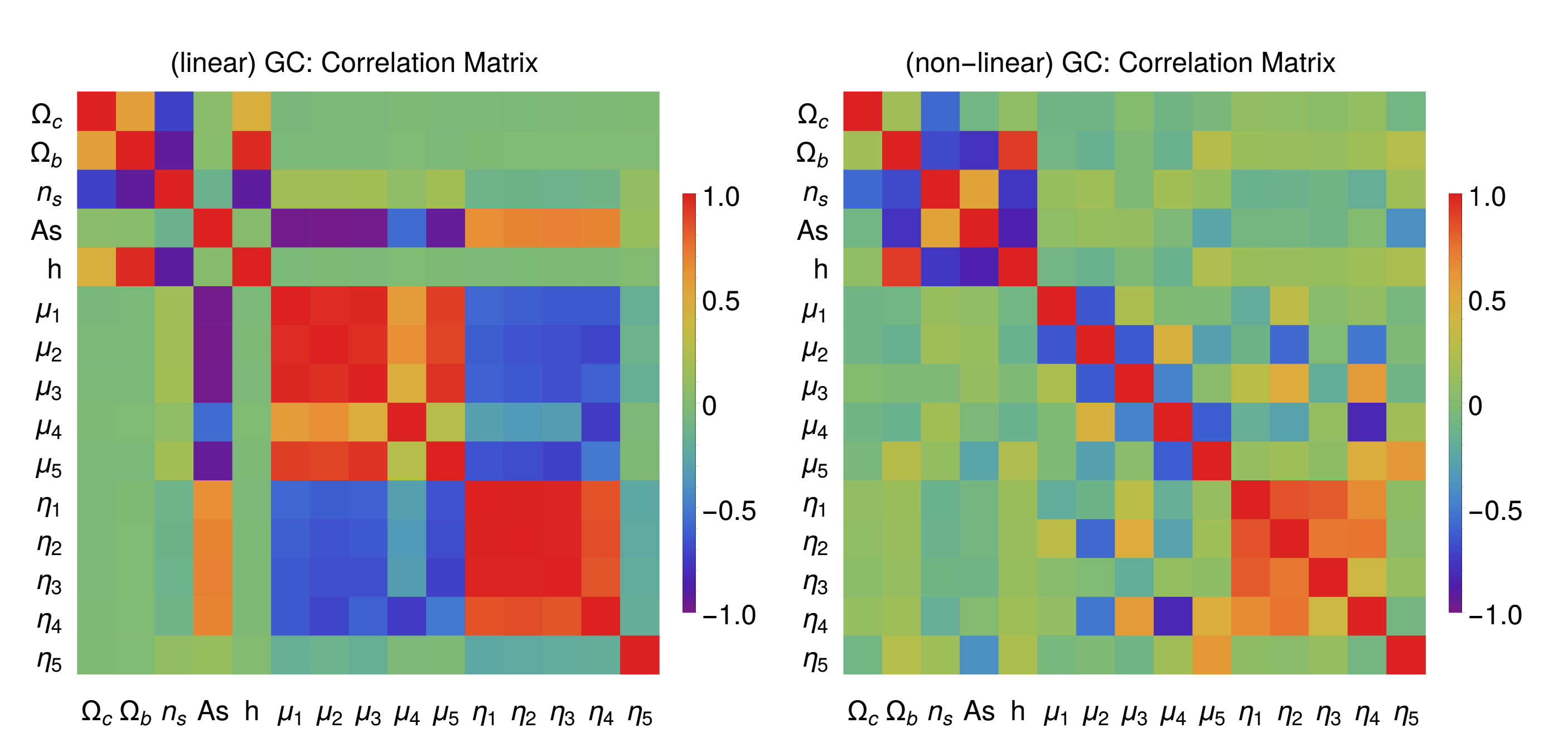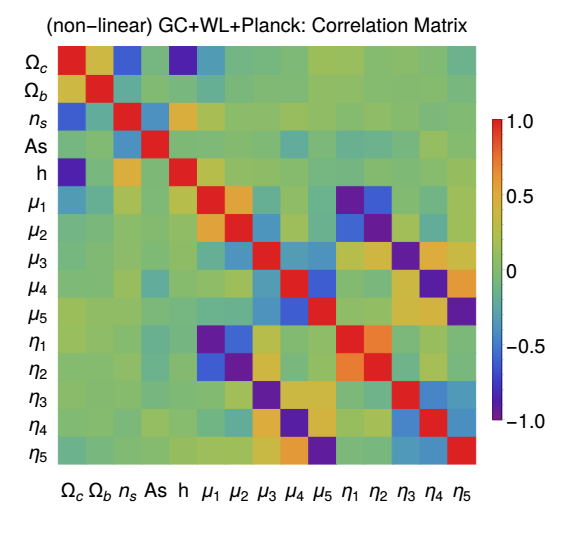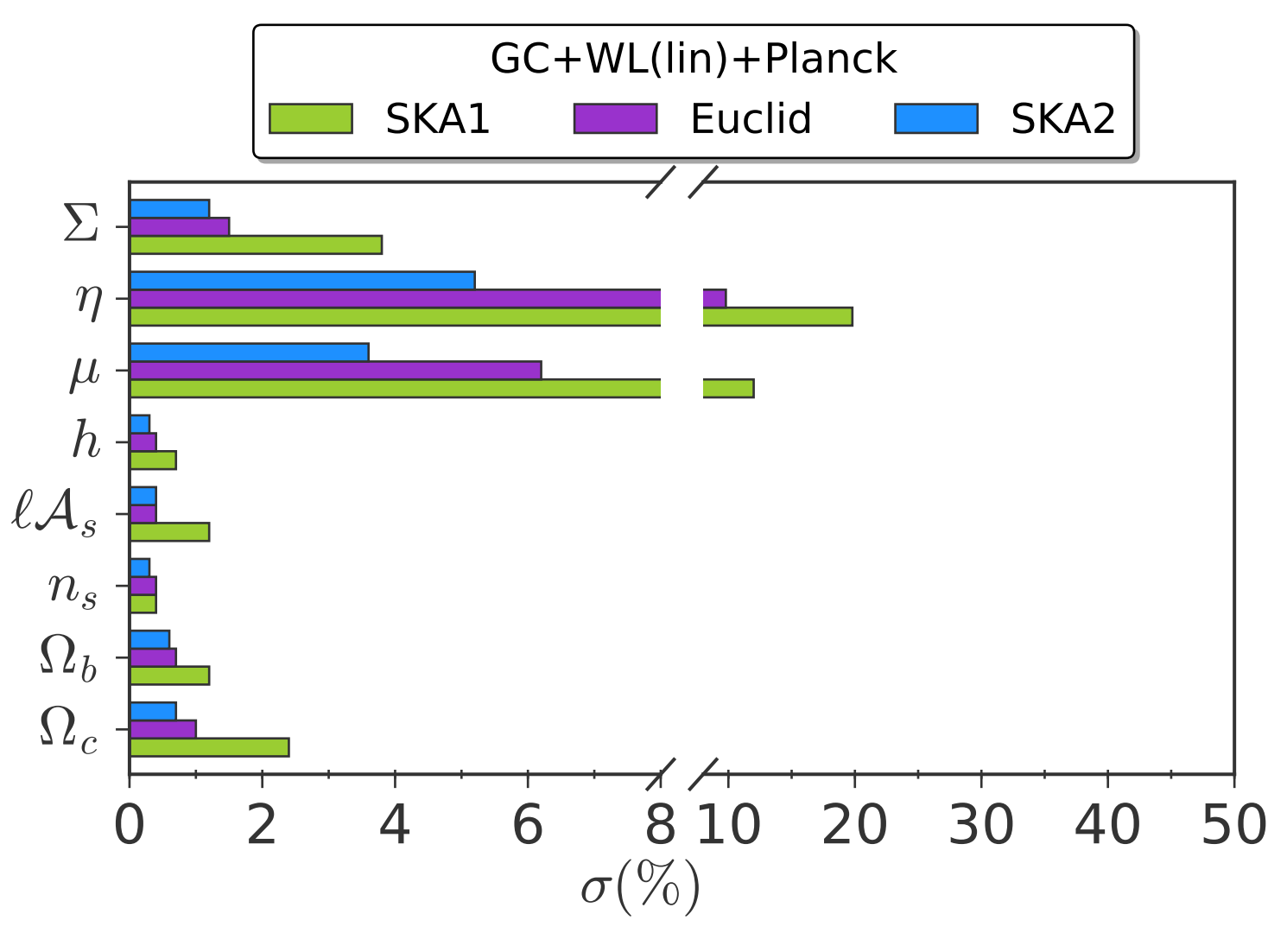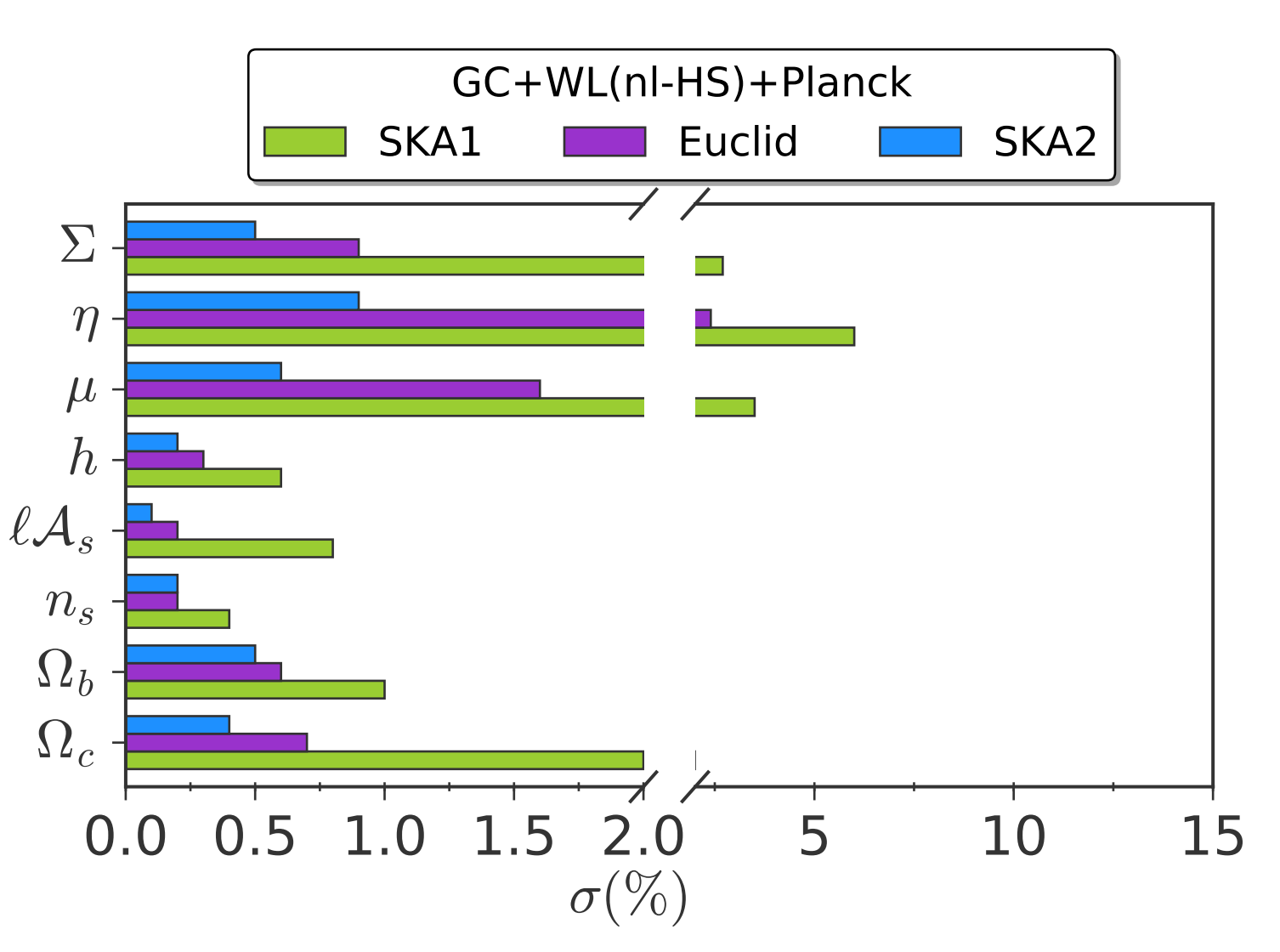| Authors: | S. Casas, M. Kunz, M. Martinelli, V. Pettorino |
| Journal: | Physics Letters B |
| Year: | 2017 |
| Download: | ADS | arXiv |
Abstract
Modified Gravity theories generally affect the Poisson equation and the gravitational slip (effective anisotropic stress) in an observable way, that can be parameterized by two generic functions (η and μ) of time and space. We bin the time dependence of these functions in redshift and present forecasts on each bin for future surveys like Euclid. We consider both Galaxy Clustering and Weak Lensing surveys, showing the impact of the non-linear regime, treated with two different semi-analytical approximations. In addition to these future observables, we use a prior covariance matrix derived from the Planck observations of the Cosmic Microwave Background. Our results show that η and μ in different redshift bins are significantly correlated, but including non-linear scales reduces or even eliminates the correlation, breaking the degeneracy between Modified Gravity parameters and the overall amplitude of the matter power spectrum. We further decorrelate parameters with a Zero-phase Component Analysis and identify which combinations of the Modified Gravity parameter amplitudes, in different redshift bins, are best constrained by future surveys. We also extend the analysis to two particular parameterizations of the time evolution of μ and η and consider, in addition to Euclid, also SKA1, SKA2, DESI: we find in this case that future surveys will be able to constrain the current values of η and μ at the 2−5% level when using only linear scales (wavevector k < 0.15 h/Mpc), depending on the specific time parameterization; sensitivity improves to about 1% when non-linearities are included.
Summary
A new paper has been put on the arXiv by new CosmoStat member Valeria Pettorino, her PhD student Santiago Casas, in collaboration with Martin Kunz (Geneva) and Matteo Martinelli (Leiden).
The authors discuss forecasts in Modified Gravity cosmologies, described by two generic functions of time and space [Planck Dark Energy and Modified Gravity 2015, Asaba et al 2013,Bull 2015, Alonso et al 2016]. Their amplitude is constrained in different redshift bins. The authors elaborate on the impact of non-linear scales, showing that their inclusion (via a non-linear semi-analytical prescription applied to Modified Gravity) enables to highly reduce correlation among different redshift bins, even before any decorrelation procedure is applied. This is visually seen in the figure below (Fig.4 of arXiv), for the case of Galaxy Clustering: the correlation Matrix of the cosmological parameters (including the amplitudes of the Modified Gravity functions, binned in redshift) is much more diagonal in the non-linear case (right panel) than in the linear one (left panel).

A decorrelation procedure (Zero-phase Component Analysis, ZCA) is anyway used to extract those combinations which are best constrained by future surveys such as Euclid. With respect to Principal Component Analysis, ZCA allows to find a new vector of uncorrelated variables that is as similar as possible to the original vector of variables.
The authors further consider two smooth time functions whose main allowed to depart from General Relativity only at late times (late-time parameterization) or able to detach also at early times (early-time parameterization). The Fisher Matrix forecasts for standard and Modified gravity parameters, for different surveys (Euclid, SKA1, SKA2) is shown in the plot below (extracted from Fig.15 of arXiv), in which Galaxy Clustering and Weak Lensing probes are combined. Left panel refers to linear analysis, right panel includes a non-linear treatment.



